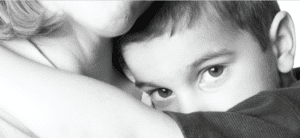Safety Tips For Parents
May 1st, 2018Why Children Don’t Tell
September 28th, 2018Sexual abuse is a difficult subject for most people to discuss, and especially difficult for parents to discuss with their children. But as frightening as the topic may be, sexual abuse is a serious and, unfortunately, common problem that affects both boys and girls. In most cases, the person who sexually abuses a child is an adult or older child known to the victim. The offender usually uses coercion and manipulation, not physical force, to engage the child.

Tips that can minimize your child’s risk:
- In early childhood, parents can teach their children the correct names of their private parts, just as they teach their child names of other body parts. This teaches that the private parts are not so private that you can’t talk about them.
- Parents can teach young children about the privacy of body parts, and that no one has the right to touch their bodies if they don’t want that to happen. Children should also learn to respect the
right to privacy of other people. - Teach children early and often that there are no secrets between children and their parents, and that they should feel comfortable talking with their parent about anything — good or bad, fun or
sad, easy or difficult. - As children age, create an environment at home in which sexual topics can be discussed comfortably. Use news items and publicized reports of child sexual abuse to start discussions of
safety, and reiterate that children should always tell a parent about anyone who is taking advantage of them sexually. - If your child discloses any history of sexual abuse, listen carefully, and take his or her disclosure seriously. Too often, children are not believed, particularly if they implicate a family
member as the perpetrator. Contact your pediatrician, the local child protection service agency, or the police. If you don’t intervene, the abuse might continue, and the child may come to believe
that home is not safe and that you are not available to help.
For more information on keeping kids safe, call (701) 323-5626.
This post was recently published in the Dakota Catholic Action. View the original article.
